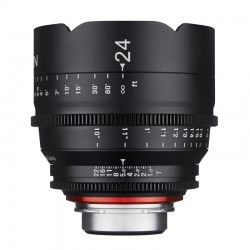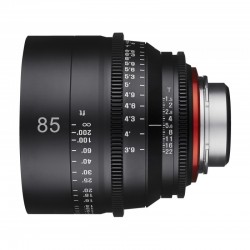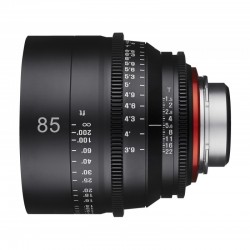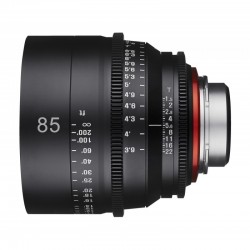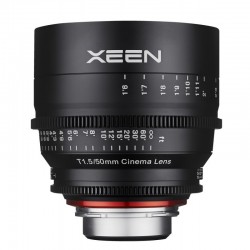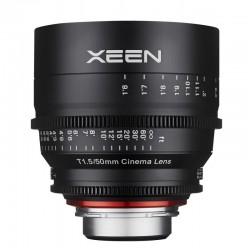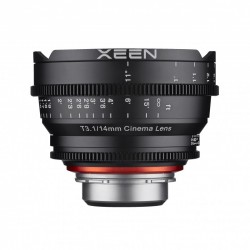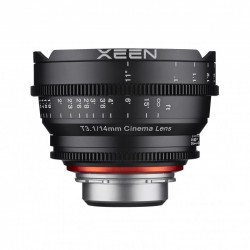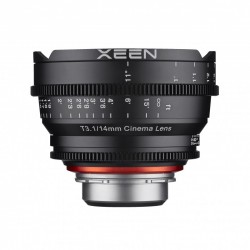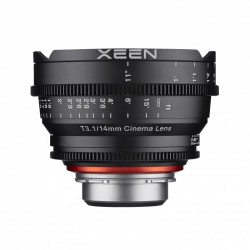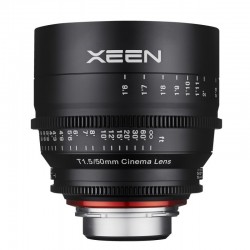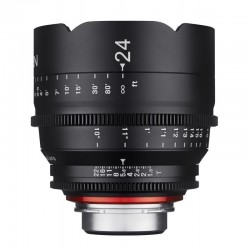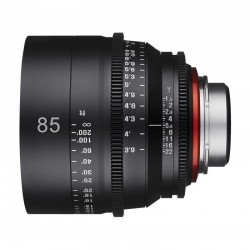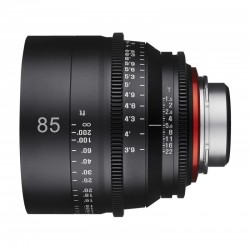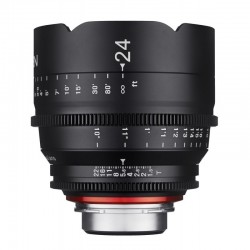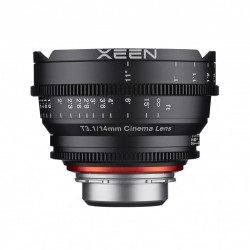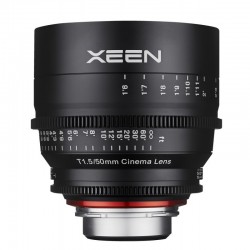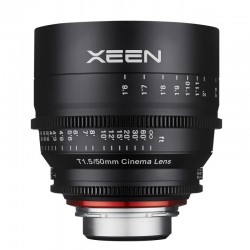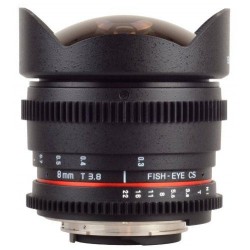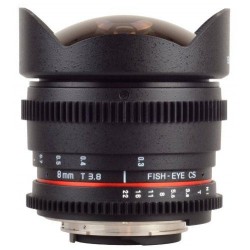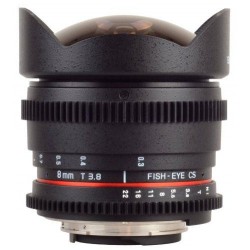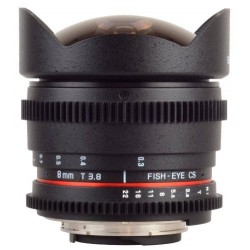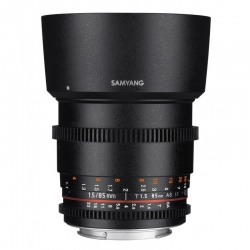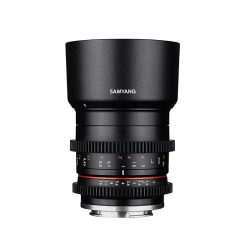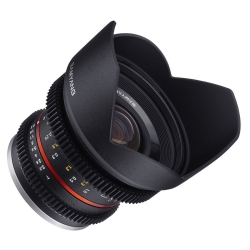- +Black Friday Deals
- +CLASSEMENT PAR MARQUE
- 9.Solutions
- 3 Legged Thing
- Accsoon
- AngelBird
- Aircell
- AirTurn
- AKG
- Ameristep
- Alpha Photonics
- A-P
- Arri
- Artistes & Artisans
- Autocue
- Atomos
- Atmosphere Aerosol
- Beachtek
- Bering Optics
- Beyerdynamic
- Benro
- Billingham
- Blackmagic Design
- Black Rapid
- Boling
- Brinno
- Boya
- Bon
- Broncolor
- Browning
- Bushnell
- Buteo Photo Gear
- B+W
- B&W Case
- Came
- Camlink
- Canford
- CamRanger
- Carry Speed
- Cineroid
- Caruba
- Camrock
- CamoSystems
- Canon
- Chasing Innovation
- Cokin
- Commlite
- Condor
- Const
- Cotton Carrier
- Colorama
- Cullmann
- Custom Brackets
- Datacolor
- DataVideo
- Dazzne
- Delta
- Deerhunter
- DJI
- Dorr
- DitoGear
- Duracell
- EasyCover
- Eckla
- Edelkrone
- Eizo
- Elgato
- Elinchrom
- Enlaps
- Epson
- Explorer Cases
- FLM
- FalconEyes
- Fostex
- Fotodiox
- FXLion
- Fujifilm
- Genesis
- Ggs
- Gigapan
- Gitzo
- Glidecam
- GoPro
- Godox
- GPO
- Grip Gear
- GudsenMoza
- Gura Gear
- Hague
- Haida
- HandeVision
- Hohem
- Hoodman
- Hoya
- Infiray
- Ilford
- Induro
- Insta360
- Interfit
- Ikan
- Irix
- Jinbei
- Jobo
- Joby
- JJC
- Jobu Design
- Jupio
- JYC
- Kaiser
- Kandao
- Kase
- Kenko
- Kenro / Kenair
- Kessler
- Key Lite
- K&F Concept
- Kipon
- Kite Optics
- Kiwi
- Kodak
- Kowa
- König & Meyer
- Konig
- Kooka
- Konova
- Lanparte
- Laowa
- Larmor
- Lastolite
- Leica
- Lexar
- LEE Filters
- Lenscoat
- Leofoto
- Livestream
- Linkstar
- Litra
- LockCircle
- Logitech
- Lowepro
- MagMod
- MacWet
- Marrex
- +Manfrotto
- MANFROTTO Tripods 057
- MANFROTTO Trépieds 055
- MANFROTTO Trépieds 190
- MANFROTTO Trépieds 290
- MANFROTTO Trépieds 390
- MANFROTTO Trépieds NATURE
- MANFROTTO Trépieds NEOTEC
- MANFROTTO Trépieds Hybride Photo/Vidéo
- MANFROTTO Trépieds Studio
- MANFROTTO Trépieds PIXI
- MANFROTTO Support Pocket
- MANFROTTO Kit Photo-Cine
- MANFROTTO Trépieds Jambes Monotubes Mpro
- MANFROTTO Trépieds Jambes Tandem
- MANFROTTO Rotules Classiques
- MANFROTTO 3D Head
- MANFROTTO Rotules Hydrostatiques
- MANFROTTO Rotules 054
- MANFROTTO Rotules 055
- MANFROTTO Rotules 057
- MANFROTTO Rotules Panoramiques
- MANFROTTO Rotules Photo-Cine
- MANFROTTO Rotules Micrométriques
- MANFROTTO Rotules Joystick
- MANFROTTO Rotules tilt
- MANFROTTO Rotules 2D
- MANFROTTO Rotules Pro
- MANFROTTO Monopodes Fluide
- MANFROTTO Nitrotech
- MeFoto
- Matin
- Maxima
- Meike
- Micnova
- Miggo
- Mil-Tec
- Mindshift Gear
- Minox
- Miops
- Motorola
- +Mitsubishi Electric
- Movo
- Mola
- Nanguang
- Nanlite
- Nebula
- Nero
- Newell
- NiceFoto
- Nikon
- Nikwax
- Novoflex
- Nisi
- Nissin
- Nowsonic
- O'Connor
- Olympus
- One
- Onion
- Orangemonkie
- Oray
- Osram
- Outdoor Club
- Palette
- Panasonic
- PDMovie
- PcHood / MacHood
- Peak Design
- Peli
- Pentax
- PGYTech
- Phottix
- Pixel
- Picture Concept
- Platypod
- PortaBrace
- Polarpro
- Profoto
- Pocketwizard
- PrompterPlus
- ProMediaGear
- Puluz
- Quadralite
- Quantuum
- Quenox
- Ready Rig
- Removu
- Qihe
- RavPower
- Rolux
- Ring Light
- Rotolight
- Rode
- Rosco
- RRS (Really Right Stuff)
- Rycote
- S4Gear
- Sachtler
- Samyang
- Sandisk
- Scuadra
- Seashell
- Sekonic
- Seissiger
- Sevenoak
- Shape
- Sennheiser
- ShoulderPod
- SmallHD
- SmallRig
- SMDV
- Sigma
- Silicon Power
- SLR Magic
- Sirui
- Sony
- Spider
- Starblitz
- Studio King
- Stealth Gear
- Sunwayfoto
- Superbee
- Swivi
- Tascam
- Tamron
- Tenba
- TelePrompterPad
- Tether Tools
- Tefal
- Thingyfy
- Think Tank
- TMC
- Tokina
- Trekking
- Tragopan
- Transcend
- Triopo
- Ulanzi
- Unibind
- Uniqball
- Urth
- ValueLine
- Vanguard
- Varavon
- Varta
- Veydra
- Vicoustic
- VSGO
- Viltrox
- VisibleDust
- Visico
- Walkstool
- Walimex
- Wimberley
- Xeen
- X-rite
- Zcam
- Zhiyun
- Zoom
- WITHOUT BRAND
- +USED
- +ONE - SHOT / Déstockage
- NOUVEAUTES
- +Ventes hors sujet (déstockages, faillites, etc...)
- +Digital Camera and Lenses
- +Canon
- +Carl Zeiss
- HandeVision
- +Nikon
- Irix
- +Laowa
- Panasonic
- Pentax
- +Samyang
- Samyang for 4/3
- Samyang pour M4/3
- Samyang pour Pentax
- Samyang pour Sony E
- Samyang for Fuji X
- Samyang for Canon M
- Samyang for Samsung NX
- Samyang Zoom
- Samyang 7,5mm
- Samyang 8mm
- Samyang 8mm VDSLR
- Samyang 10mm
- Samyang 10mm VDSLR
- Samyang 12mm
- Samyang 12mm VDSLR
- Samyang 14mm
- Samyang 14mm VDSLR
- Samyang 16mm -18mm
- Samyang 16mm VDSLR
- Samyang 21-24mm
- Samyang 21-24mm VDSLR
- Samyang T-S 24mm Tilt/Shift
- Samyang 35mm
- Samyang 35mm VDSLR
- Samyang 100mm
- Samyang 50mm
- Samyang 50mm VDSLR
- Samyang 85mm
- Samyang 85mm VDSLR
- Samyang 300mm
- Samyang Cinema Kits
- Samyang Caps
- Samyang Convertisseurs
- Samyang Filters
- Samyang Lenshood
- Samyang T-Mount Adpaters
- Samyang Cases
- +Sigma
- Sirui
- Sony
- SLR Magic
- +Tamron
- +Tokina
- Xeen
- Veydra
- +Flash Cobra & accessoires
- +PHOTO Tripod - Head - Monopod
- 3 LEGGED THING Kit
- 3 LEGGED THING Trépieds
- 3 LEGGED THING Têtes
- 3 LEGGED THING Accessoires
- +Benro Tripod
- +BENRO Head
- +Benro Kit
- +BENRO Monopods
- +BENRO Accessoires
- CULLMANN
- CUSTOM BRACKETS Tête pendulaire
- DUTCH HILL
- ECKLA
- FLM Ball Head
- FLM Monopods
- FLM Accessories
- GENESIS Tripods
- GENESIS Head
- GENESIS Accessoiries
- +GITZO Tripods
- GENESIS Monopods
- +GITZO Heads
- GITZO Monopods
- GITZO accessoires
- LEOFOTO Kit
- +LEOFOTO Tripod
- +LEOFOTO Head
- LEOFOTO Monopod
- +LEOFOTO Accessory
- INDURO head
- +INDURO Tripod
- INDURO Hi-Hat
- INDURO Monopods
- PEAK DESIGN Tripod
- INDURO Accessories
- JOBU Têtes Pendulaires et Accessoires
- JOBY
- KONOVA
- MANFROTTO Tripods
- MANFROTTO Tripod + Head Kits
- MANFROTTO Head
- MANFROTTO Monopods
- MANFROTTO accessories
- MEFOTO
- ONION Tripod - Monopod
- PROMEDIAGEAR
- RRS (Really Right Stuff)
- SEVENOAK Gimbal Head
- SIRUI Monopodes
- +SIRUI Trépieds
- SIRUI Têtes
- SIRUI Kits Trépied + tête
- SIRUI Plateaux rapides
- SUNWAYFOTO Têtes
- SUNWAYFOTO Photo Panoramique
- SUNWAYFOTO Bases de Mise à Niveau
- SUNWAYFOTO Accessoires
- TRIOPO Trépieds
- Autres accessoires
- TRIOPO Têtes
- TRIOPO Monopodes
- TRIOPO accessories
- ULANZI
- UNIQBALL
- +WIMBERLEY
- +VIDEO Trépieds - Têtes - etc...
- +Prise de vue Vidéo
- Caméra
- Timelapse Camera
- +Lenses and converters
- Video tripods and more
- Control Panel
- Rig - Support d'épaule - Cage
- Magic Arm
- Steadycam - Stabilizer - Gyro
- +Slider / Rail travelling
- Sound
- Viewfinder
- Screen / Monitor
- +Memory
- Lighmeters and Colormeters Video
- Lighting
- Reflector
- Remote control
- Cable
- Energy
- Fan
- Prompter
- Projection Screen
- +Sound
- +Matériel de Studio
- +Poignée d'alimentation
- +Binoculars & Spotting Scope
- +Filtres
- B+W Filters
- +BENRO Filters
- COKIN Filter
- +HOYA Filters
- KASE Filters
- KENKO Filters
- LEE Filters
- +NISI Filters
- PHOTTIX Filters
- +POLARPRO Filters
- SIGMA Filters
- +TIFFEN Filters
- +TOKINA Filters
- SLR Magic Filters
- URTH Filters
- +Filters Other brands
- Filtres pour compact
- +Hide - Protection - Camo
- +Protection et camouflage LENSCOAT
- +Protection et camouflage LENSCOVER
- Protection and Camo EASYCOVER
- Hide
- Camo net
- Seat
- Housse Boîtier/Objectif
- +Housse All In One
- Silicon Protection for body Camera
- Bean Bag
- +Clothes
- Deerhunter Clothes
- +Stealth Gear Clothes
- Balaclava and Hat
- Gants
- Entretien
- Photo jacket
- Vêtements de camouflage
- Ghillie
- Batteries, Chargeurs & Alims
- Bouchons
- +Remote control
- Casquettes Anti-Reflets pour écran
- +Balance des Blancs (WB) - Chartes - Gestion des Couleurs
- +Collar and remplacement foot for lenses
- +Bagues & Adaptateurs
- GPS pour appareil photo
- Caissons étanches
- +Transport Bag
- Sac pour ordinateur portable
- AirCell
- Benro - Mefoto
- BILLINGHAM
- B&W Case
- Carry Speed
- COTTON CARRIER
- Cullman
- DJI - Transport
- Explorer Cases
- GENESIS
- GGS Fotospeed
- GIGAPAN
- Gitzo
- GODOX
- Gura Gear
- LENSCOAT
- LEOFOTO Bag
- LOWEPRO
- MANFROTTO
- Miggo
- Peak Design
- PELI Cases
- PGYTech
- PHOTTIX
- PortaBrace
- Profoto
- +TENBA
- TRAGOPAN
- TREKKING Harnais
- S4GEAR
- Samyang cases
- SPIDER
- STEALTH GEAR
- Think Tank - Mindshift Gear
- Vanguard
- Divers
- Drones
- GADGETS
- Camera Action accessories
- +PHONE accessories
Samyang 14mm T3.1 VDSLR ED AS IF UMC Nikon
New product
Availability: Delay approx. 1 or 2 days
Warning: Last items in stock!
Availability date:
| Parameter | Value |
| Focal length: | 14 mm |
| T-number: | 3.1 |
| Angle of view: | 115.7° |
| Minimum focusing distance: | 0.28 m |
| Minimum aperture: | 22 |
| Number of aperture blades: | 6 |
| Focus adjustment: | manual |
| Optical construction: | 14 lens elements, 10 groups, 1 ASP, 1 Hybrid ASP, 2 ED, 3 HR |
| Available mounts: | Canon EF, Nikon F, Sony A, Sony E |
| Dimensions (for Canon EF): | 96.1 x 87 mm |
| Weight (for Canon EF): | 620g |
0 Item Items
- Send to a friend
Send to a friend
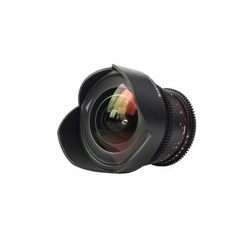
Samyang 14mm T3.1 VDSLR ED AS IF UMC Nikon
Parameter Value Focal length: 14 mm T-number: 3.1 Angle of view: 115.7° Minimum focusing distance: 0.28 m Minimum aperture: 22 Number of aperture blades: 6 Focus adjustment: manual Optical construction: 14 lens elements, 10 groups, 1 ASP, 1 Hybrid ASP, 2 ED, 3 HR Available mounts: Canon EF, Nikon F, Sony A, Sony E Dimensions (for Canon EF): 96.1 x 87 mm Weight (for Canon EF): 620g Recipient :
* Required fields
or Cancel
- Share on Facebook!
More Info
An ultra wide angle, prime lens, the Samyang 14mm T3.1 ED AS IF UMC has been designed to work with full frame or APS-C cameras. VDSLR Samyang lenses are fitted with racks compatible with the Follow Focus system. This solution allows for effortless and accurate rotation of focus and aperture rings. The aperture ring is rotated smoothly and noiselessly. These modifications allow for extremely comfortable and effective control of focal plane and depth of field during filming.
Its optics comprise of 14 lens elements arranged in 10 groups. The model has been fitted with two ED lenses with a low dispersion factor, two aspherical lens elements, including one hybrid element and three elements with a high refraction factor. All lens elements have been covered with the highest-quality anti-reflective UMC coatings. The lens provides maximum angle of view equal to 115.7 degrees, while the minimum focusing distance is 0.28 meters. Brightness of the lens corresponds with the T-number of 3.1. To facilitate the reading on the focus and aperture scale, both these indexes are marked in a parallel position to the optical axis of the lens.
dsmlvzdfmbnzfmb
















